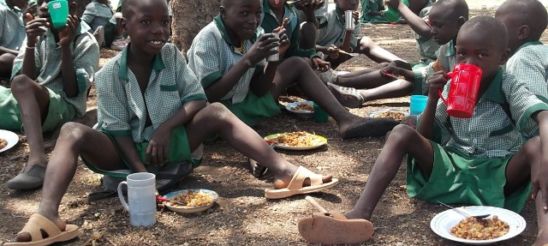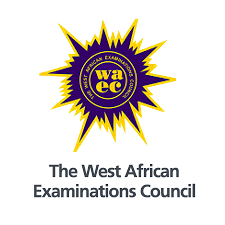It’s the second year in a row that the number of new international enrolments in the US has declined, denting a market worth $42bn (£33bn) to the US economy last year.
Prof Simon Marginson, of Oxford University, an expert on trends in international students, says there is “little doubt” this downturn is related to the Trump administration.
NATIONAL SCHOOL FEEDING PROGRAMME TO BECOME AFRICA’S LARGEST BY END OF 2018, SAYS VP OSINBAJO
* Over 9m primary pupils benefiting in 26 states already
* Over $183million has been invested so far
* 95,422 cooks and over 100,000 smallholder farmers benefitting
He added, “it is becoming clearer that the 21st Century will be defined by knowledge and skills. The nations that are best able to present the most knowledgeable and most skilful citizens will prevail in commerce, in science and technology and of course, will enjoy the greatest prosperity and the longevity to enjoy the prosperity. Nations that do not invest enough to produce the required level of talent and skills will be left behind. A farther distance than ever before in the history of mankind.”
By the end of 2018, with the number of new States in the country joining the National Homegrown School Feeding Programme, it is set to become the largest school-feeding programme in Africa, says Vice President Yemi Osinbajo, SAN. He stated this in Tunisia, where he delivered a keynote address at the closing ceremony of the 20th Annual Global Child Nutrition Forum held at Four Seasons hotel in Tunis, stating that the programme “has been by all accounts, a remarkable success.” Speaking on the philosophy underlying the Programme, Prof Osinbajo told the 353 delegates from 9 countries, which include experts in the nutrition industry, United Nations officials from World Food Programme, Global Child Nutrition Fund, the World Bank and stakeholders that “Nigeria took the decision to embark on a school feeding programme as an important part of our human capital development agenda, by tackling the broader issues of eradication of poverty, food and nutrition security, and increasing school enrollment.”
New U.S. Visa Policy Affects International Students

Updates to regulation 8 CFR 103.2(b)(8) will take effect on September 11, 2018, but what exactly is this regulation? In short, this is the regulation that determines the criteria for USCIS to issue a Request for Evidence (RFE) or Notice of Intent to Deny (NOID) if you do not provide all the necessary visa information up front. In addition, the new policy memo gives the USCIS adjudicator “full discretion to deny applications, petitions, or requests” without requesting additional evidence.
This means that it is important to get your visa application right the first time, and to include all of the necessary information and documents upon filing.
How Will the New Visa Policy Affect International Students?
For F-1 student visa applicants and visa holders, the policy could have an impact at the initial visa interview. You could also be affected you if you are applying for:
- Work authorization based on economic hardship: If you are experiencing extreme economic hardship, you may apply to USCIS for authorization to work off campus.
- Reinstatement: If you allow your F-1 visa to become out-of-status, then you must apply for reinstatement to regain valid status.
NAAT blames mass failure of students on low budget for education
The National Association OF Academic Technologists (NAAT) has blamed the abysmal performance of secondary school students on the dwindling allocation of resources to the education sector.
The union in a communiqués reached at the end of its 37th National Executive Council (NEC) meeting, held at Obafemi Awolowo University (O.A.U), Ile-Ife, noted that despite the existence of ‘special centres’, the results of the Senior Secondary Certificate Examination (SSCE) keeps dropping year on year.
The union observed that the abysmal performance is equally to blame for the falling standard of education across the tertiary levels. The communiqué read in part: “In spite of the worrisome existence of ’special centres’, the results of SSCE keep dropping – implying poor quality of secondary school graduates. This may not be unconnected with the poor allocation of financial and human resources to the education sector.
Full article: https://guardian.ng/appointments/naat-blames-mass-failure-of-students-on-low-budget-for-education/
Microsoft unveils new education package for Nigerian schools

Microsoft Corporation, in partnership with the Federal Ministry of Education, Abuja, has introduced an educational framework for the digital transformation of primary and secondary schools in the country.
Our correspondent learnt that part of the framework is a technology solution, Microsoft 365, which can help schools to upload the scores of their pupils and make them accessible to parents. The solution, developed under the ‘Windows in the Classroom’ programme, was done in collaboration with a Nigerian firm, Sidmach Technologies.
The Microsoft Education Programmes Manager, Jordan Belmonte, in an interview with our correspondent, said the package would also help schools to track their pupils’ attendance and assist parents to monitor their children’s academic performance.
Full Article : http://punchng.com/microsoft-unveils-new-education-package-for-nigerian-schools/
Why students lose interest in Mathematics — Educationist

An educationist, Mr Philip Balogun, on Friday said that many students lose interest in Mathematics because of the difficult and cumbersome processes applied by their teachers.
Balogun, who is Vice Principal, Grace Group of Schools, Gbagada, spoke in an interview with the News Agency of Nigeria (NAN) in Lagos.
He said for this reason, many children, right from the tender age, developed cold feet in solving mathematics problems.
The educationist said there was a need to be more creative in teaching the subject to make such students interested in it.
Source : Guardian
International students bring economic benefits to the UK!
International students are worth £20bn to the UK economy, says a report from the Higher Education Policy Institute.
The analysis says on top of tuition fees, their spending has become a major factor in supporting local economies.
London alone gains £4.6bn – with Sheffield the biggest beneficiary in proportion to its economy.
The think tank’s director, Nick Hillman, says the figures support calls to remove students from immigration targets.
There are about 230,000 students arriving each year for university courses in the UK – most of them postgraduates, with China the most common country of origin.
“Fewer international students would mean a lot fewer jobs in all areas of the UK, because international students spend money in their universities, in their local economies,” he says.
“It is literally the sandwich shops, the bike shops, the taxi firms; it is the night clubs, it’s the bookshops.
“Without international students, some of the local companies might go bust. Some of the local resident population would lose their jobs,” says Mr Hillman.
The Higher Education Policy Institute, which carried out the study with education company Kaplan, argues that the UK should have a more positive approach to students from overseas – and separate them from the wider debate about immigration.
Source : BBCeducation
WAEC releases 2018 exam timetable for private candidates

The West African Examination Council, WAEC, has announced that it would be conducting two series of the West African Senior School Certificate Examination (WASSCE) for private candidate from 2018.
According to a post on the official twitter handle of the council @waecnigeria, the first series will be conducted between January and February, while the 2nd series will be conducted between August and October every year.
Source : WAEC
LIST OF APPROVED EXAM TOWNS FOR WASSCE FOR PRIVATE CANDIDATES
How social vices affect schooling – Chioma Osuji
 The Policy Adviser, Civil Society Action Coalition on Education for All (CSACEFA), Chioma Osuji, spoke on the effects of social vices in schools.
The Policy Adviser, Civil Society Action Coalition on Education for All (CSACEFA), Chioma Osuji, spoke on the effects of social vices in schools.
Over N360 billion has been accessed by the states from the Federal Government to improve basic education, but challenges still persist. Why?
If you go to these states that have accessed UBEC counterpart funding you will discover that basic education there is still in shamble; there’s no teaching and learning materials among others. What happened to the utilization of these funds, what happened to the management of the funds? This is something that we are looking at.
Source : DailyTrust
Discovering panacea to colleges’ budgetary weight
In February 2010, irate students at the Ambrose Alli University, Ekpoma, Edo State, were reported to have gone on rampage setting ablaze supermarkets filling stations, and raiding banks. The students were protesting the hike in school fees from N26, 000 to N76, 000 for full-time and from N30, 000 to N100, 000 for part-time students.
On the other hand, university workers are complaining of lack of adequate funding for tertiary institutions.
The Academic Staff Union of Universities (ASUU) for five months in 1992, 1993, 1994, and 1996, went on strike because of it. They downed tool again for three months in 2001; two weeks in 2002; six months in 2003; three months in 2007; four months in 2009; five months in 2010; three months in 2011; and six months in 2013.
Source : Guardian





